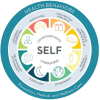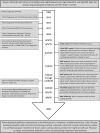Effects of Health and Wellness Coaching With an Adult Cancer Caregiver
- PMID: 35933668
- PMCID: PMC9662252
- DOI: 10.7812/TPP/21.227
Effects of Health and Wellness Coaching With an Adult Cancer Caregiver
Abstract
Introduction Although cancer most directly affects the patient, its impact is also widely recognized to extend to those who are caring for the patient. Cancer patient caregivers endure psychological distress, have high levels of depression, and report isolation and strain. Research on targeted caregiver interventions is limited. This case report examines the use of health and wellness coaching (HWC) with a caregiver of a patient with neuroendocrine tumors, a rare, insidious type of cancer. Case Presentation We present the first known case report on using HWC with a 44-year-old woman adult cancer patient caregiver who was caring for a patient with neuroendocrine tumors. The patient had a chronically elevated body mass index, cholesterol, and stage 2 hypertension. Her primary care physician had prescribed weight loss medication (naltrexone/bupropion), which the patient hesitated to take and wanted to try HWC instead. The 10-session intervention targeted multiple components of health, including blood pressure, body mass index, cholesterol, weight loss, stress management, relationship success, and vocational progress. Outcomes were followed over a 1-year period. Conclusion This case demonstrates multiple unique aspects of the HWC process that support successful, sustainable behavioral change. The case patient's success suggests HWC may be effective in supporting beneficial physical and psychosocial outcomes with an adult cancer caregiver and should be considered a viable option for promoting health in caregivers.
Keywords: cancer caregiving; caregiver; caregiver support; case report; health coaching; neuroendocrine tumors (NETS); self-care.
Conflict of interest statement
Figures
References
-
- Cancer caregiving in the U.S . An Intense, Episodic, and Challenging Care Experience. Accessed 7 December 2020. https://www.caregiving.org/wp-content/uploads/2020/05/CancerCaregivingRe....
Publication types
MeSH terms
LinkOut - more resources
Full Text Sources



